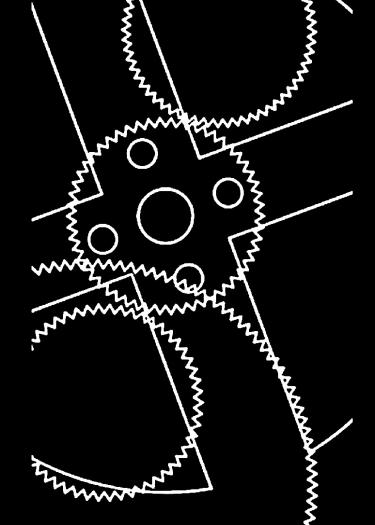Changing Perspectives - Philosophical Talk Series Cycles of Time: Reconstructing the Antikythera Mechanism with Ancient Greek Tools
- Termin in der Vergangenheit
- Freitag, 24. Oktober 2025, 19:00 Uhr
- Mathematikon • Conference Room, Room 5/104, 5th Floor • Im Neuenheimer Feld 205 • 69120 Heidelberg
- Aristeidis Voulgaris • Independent Researcher, Lead of The FRAMe Project, IAU Working Group on Solar Eclipses
The Antikythera Mechanism, a unique geared device of the Hellenistic era, stands as the world’s first known analog computer. Designed to measure time and could predict astronomical events, such as the lunar phases, the Sun’s position on the Ecliptic, the date, and the exact hour of the lunar and solar eclipses, as well as the date of the Olympic Games and more. Its construction demanded extraordinary precision, achieved with ancient machine tools, gears, axles, and calibrated scales.
In this talk, Aristeidis Voulgaris will guide us through his journey of reconstructing the Antikythera Mechanism using only tools and techniques available to ancient Greek craftsmen. He will reveal how his hands-on approach solved mysteries that had puzzled the archeological community for over a century, including the function of the mysterious “Fragment D” and the discovery of the lost Draconic cycle. He will explain the advanced methods of eclipse prediction developed more than two millennia ago, and how, even today, true progress often requires us to step back, change our perspective, and rediscover forgotten ways of thinking in order to move forward.

Adresse
Mathematikon • Conference Room, Room 5/104, 5th Floor • Im Neuenheimer Feld 205 • 69120 Heidelberg
Veranstalter
Veranstaltungstyp
Vortrag
Kontakt
About the Speaker:
Aristeidis Voulgaris is an independent researcher whose career bridges music, astronomy, and archaeology. Trained as a professional violinist, he carried the precision of performance into the study of ancient machines. As leader of The Functional Reconstruction of the Antikythera Mechanism – The FRAMe Project, his reconstructions solved the century-old mystery of “Fragment D”, showing that it encoded the Draconic cycle, the missing lunar cycle needed to predict eclipses. This discovery enabled the first complete functional reconstruction of the Mechanism’s back plate and Saros spiral. Beyond ancient technology, Voulgaris is also a solar eclipse researcher. He has led and participated in 13 international solar-eclipse research expeditions across six continents. His custom-built spectrograph flew on a NASA aircraft during the total Solar eclipse of 2017 and also 2019, and 2021 Eclipse Flights expeditions, and he is a member of the IAU Working Group on Solar Eclipses.